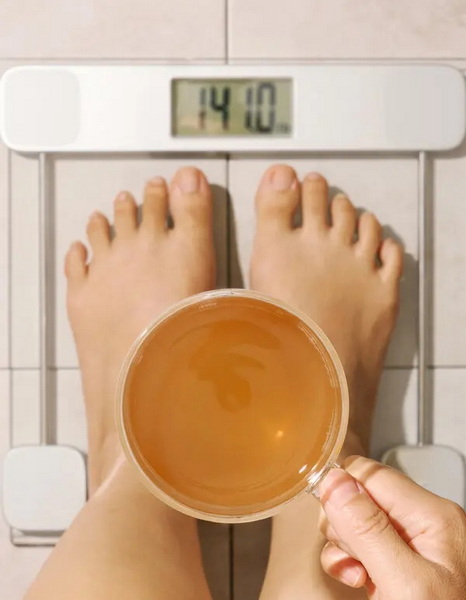Content Menu
● Understanding Green Tea Extract
>> Key Components of Green Tea Extract
● How Green Tea Extract Aids Weight Loss
● Evidence from Clinical Studies
● Mechanisms Behind Weight Loss
● Recommended Dosage
● Potential Side Effects
● Real-Life Applications and Testimonials
● Conclusion
● FAQs
>> 1. How much weight can I expect to lose with green tea extract?
>> 2. Is it safe to take green tea extract every day?
>> 3. Can I drink regular green tea instead of taking extracts?
>> 4. Will green tea extract help me lose belly fat specifically?
>> 5. Should I consult a doctor before starting green tea extract?
● Citations:
Green tea has been celebrated for centuries for its health benefits, and in recent years, it has gained attention as a potential aid for weight loss. With the rise of obesity rates globally, many are turning to green tea extract as a natural supplement to help shed pounds. This article explores the evidence surrounding green tea extract and its effectiveness in promoting weight loss, along with its mechanisms of action, recommended dosages, and potential side effects.

Understanding Green Tea Extract
Green tea extract is derived from the leaves of the *Camellia sinensis* plant and contains high concentrations of beneficial compounds, particularly catechins and caffeine. The most notable catechin in green tea is epigallocatechin gallate (EGCG), which is believed to be responsible for many of its health benefits, including weight loss.
Key Components of Green Tea Extract
- Catechins: These are antioxidants that help increase metabolism and fat oxidation.
- Caffeine: A natural stimulant that can enhance energy expenditure and fat burning.
- L-Theanine: An amino acid that promotes relaxation without drowsiness, often found in green tea.
How Green Tea Extract Aids Weight Loss
Research suggests that green tea extract can aid weight loss through several mechanisms:
- Increased Metabolic Rate: Studies indicate that green tea extract can boost metabolic rate by 3-4% over 24 hours, leading to increased calorie burning even at rest.
- Enhanced Fat Oxidation: Green tea extract has been shown to increase fat oxidation during exercise. In one study, participants who took green tea extract before exercising burned 17% more fat than those who did not.
- Appetite Suppression: Some studies suggest that green tea may help reduce appetite, leading to lower calorie intake. However, results are mixed, with some studies showing no significant effect on appetite.
- Improved Insulin Sensitivity: Regular consumption of green tea extract may improve insulin sensitivity and reduce blood sugar levels, which can be beneficial for weight management.
Evidence from Clinical Studies
Numerous studies have investigated the effects of green tea extract on weight loss:
- A systematic review involving nearly 60 studies found that participants taking green tea extract lost an average of 0.5 kg (1.1 lbs) more than those who did not take the supplement over a period of 12 weeks.
- In a randomized controlled trial, women with central obesity who took high doses of EGCG (856.8 mg daily) for 12 weeks experienced significant reductions in body weight and waist circumference compared to a placebo group.
- Another study indicated that individuals consuming five cups of green tea daily could burn an additional 70 calories through thermogenesis, although this alone would not lead to significant weight loss without dietary changes.

Mechanisms Behind Weight Loss
The mechanisms by which green tea extract promotes weight loss are multifaceted:
1. Thermogenesis: Green tea increases thermogenesis—the process by which the body generates heat and energy from digesting food. This process can lead to increased calorie expenditure.
2. Fat Oxidation: The catechins in green tea have been shown to enhance fat oxidation during exercise, making it easier for the body to utilize fat as an energy source.
3. Hormonal Regulation: Green tea may influence hormones related to appetite regulation. For instance, it can help increase levels of adiponectin, a hormone that enhances insulin sensitivity and regulates glucose levels.
4. Gut Microbiota Modulation: Emerging research suggests that green tea may positively influence gut microbiota composition, which plays a role in metabolism and fat storage.
Recommended Dosage
For those considering green tea extract as a supplement for weight loss, the following guidelines can be helpful:
- A typical dosage ranges from 250 mg to 500 mg per day, standardized to contain 45-50% EGCG.
- It is advisable to take the extract in divided doses throughout the day to maximize absorption and effectiveness.
Potential Side Effects
While green tea extract is generally considered safe for most people when taken in moderate amounts, it can cause side effects in some individuals:
- Caffeine Sensitivity: High doses may lead to insomnia, anxiety, or heart palpitations due to caffeine content.
- Gastrointestinal Issues: Some users report nausea or stomach upset when taking green tea extract on an empty stomach.
- Liver Toxicity: Rare cases of liver damage have been reported with excessive consumption of concentrated green tea extracts.
Real-Life Applications and Testimonials
Many individuals have shared their experiences with using green tea extract for weight loss:
- Some users report feeling more energetic after incorporating green tea into their daily routine. This energy boost can lead to increased physical activity levels, further aiding weight loss efforts.
- Others have noted a reduction in cravings and snacking behavior when consuming green tea regularly. This appetite suppression can contribute significantly to overall calorie reduction.
- Anecdotal evidence suggests that combining green tea with regular exercise enhances fat-burning effects. Individuals who engage in physical activity while supplementing with green tea often report better results than those who do not.
Conclusion
In summary, while green tea extract may offer modest benefits for weight loss through increased metabolism and fat oxidation, it should not be viewed as a miracle solution. The most effective approach to weight management involves a combination of dietary changes and regular physical activity. Green tea extract can serve as a supportive tool in this journey but should be used alongside other healthy lifestyle practices.

FAQs
1. How much weight can I expect to lose with green tea extract?
While some studies suggest modest weight loss (around 1 kg over several weeks), individual results may vary based on diet and exercise habits.
2. Is it safe to take green tea extract every day?
Yes, for most people, taking moderate doses (250–500 mg) daily is considered safe. However, individuals sensitive to caffeine should monitor their intake.
3. Can I drink regular green tea instead of taking extracts?
Yes! Drinking several cups of green tea daily can provide health benefits; however, extracts offer higher concentrations of active compounds.
4. Will green tea extract help me lose belly fat specifically?
Some studies indicate that green tea may help reduce visceral fat; however, overall body fat reduction is necessary for noticeable changes in belly fat.
5. Should I consult a doctor before starting green tea extract?
If you have underlying health conditions or are taking medications, it's wise to consult a healthcare professional before starting any new supplement regimen.
Citations:
[1] https://www.psu.edu/news/research/story/research-suggests-green-tea-exercise-boost-weight-loss-health
[2] https://www.nytimes.com/2024/09/24/well/green-tea-weight-loss-ozempic.html
[3] https://www.foxnews.com/health/green-tea-fueling-weight-loss-experts-skinny-truth
[4] https://www.youtube.com/watch?v=kmlcjBJ05Sk
[5] https://pmc.ncbi.nlm.nih.gov/articles/PMC7830344/
[6] https://pubmed.ncbi.nlm.nih.gov/38031409/
[7] https://www.medicalnewstoday.com/articles/320540
[8] https://www.youtube.com/watch?v=7z2v3SiBDlA
[9] https://pmc.ncbi.nlm.nih.gov/articles/PMC8406948/
[10] https://www.youtube.com/watch?v=yvjj4HwjUyM






























